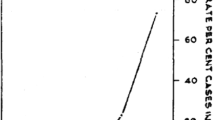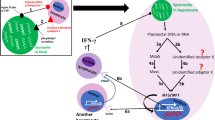Abstract
Objective: To compare the safety and efficacy of two compounds of dihydroartemisinin (DHA)—Artekin and Artekin (T) in the treatment of uncomplicated falciparum malaria.Methods: The regimen of 8-tablet for 2 days of Artekin and Artekin (T) were applied to 100 patients with uncomplicated falciparum malaria, who were randomly divided into two groups. Each group contained 50 cases. The cure rate, the mean parasites clearance time, the mean fever clearance and side-effects were observed to assess the safety and efficacy of the compounds used.Results: The mean parasites clearance time was 31.7±9.0 hours in the Artekin group and 32.8±8.8 hours in Artekin (T) group respectively; the mean fever clearance time was 12. 7±7. 2 hours in Artekin group and 16. 5±7. 9 hours in Artekin (T) group; there were no recrudescence case in both groups within the 28 days of follow-up, the cure rates in Artekin group and Artekin (T) groups were 100%. It indicated that the tolerability of both compounds were very good, the side-effects such as nausea, abdominal pain were mild and self-limited.Conclusion: The study preliminarily indicated that the DHA and PQ compounds were of high efficacy, rapid acting and low toxicity. Artekin is very promising as a cheap, simple, effective treatment for multi-resistance malaria in Cambodia.
Similar content being viewed by others
References
Mclntosh HM, Greenwood BM. Chloroquine or Amodiaquine combinated with sulfadoxine-pyrimethamine as a treatment for uncomplicated malaria—a systematic review. Ann Tropical Medicine Parasitology 1998; 93: 265–270.
Mockenhaupt FP. Mefloquine resistance in Plasmodium falciparum. Parasitol Today 1995; 11: 248–253.
WHO (1973) Chemotherapy of malaria and resistance to antimalaria. Report of a WHO scientific working group. WHO Tech. Rep, ser 1973;529: 30.
WHO. The World Health Report. WHO Geneva 1998: 184.
RingWald P, Bickii J, Basco L. Randomized trial of pyronaridine versus chloroquine for acute uncomplicated falciparum malaria in Africa. Lancet 1996; 347: 24–28.
Sowunmi A, Odupla AMJ. Open comparison of mefloquine, mefloquine/sulfadoxine/ pyrimethamine and choroquine in acute uncomplicated falciparum malaria in children. Trans R Soc Trop Med Hyg 1995; 89: 303–305.
Nosten F, Ter Kuile Fo, Chongsuphajaisiddhi T, et al. Melfoquine-resistant falciparum malaria on the Thai-Burmese border. Lancet 1991; 337: 1140–1143.
Pukritt Ayakamee S, Supanaranonnd S, Looareesuwan S, et al. Quinine in severe falciparum malaria: evidence of declining efficacy in Thailand. Tran R Soc Trop Med Hyg 1994; 88: 488–491.
Author information
Authors and Affiliations
Corresponding author
Rights and permissions
About this article
Cite this article
Jian-ping, S., Socheat, D. & Seila, S. A comparative study of dihydroartemisinin compounds in treatment of uncomplicated falciparum malaria in Kampong of Cambodia. Chin. J. Integr. Med. 9, 31–34 (2003). https://doi.org/10.1007/BF02836350
Received:
Issue Date:
DOI: https://doi.org/10.1007/BF02836350




